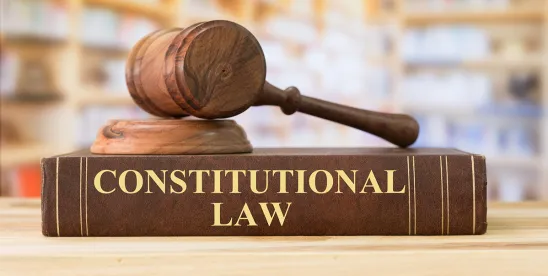My email inbox has been flooded with questions about Judge Amos L. Mazzant's decision to preliminarily enjoin the Corporate Transparency Act and its implementing regulations. Texas Top Cop Shop, Inc. v. Garland, 2024 WL 4953814 (Dec. 03, 2024). Judge Mazzant found that the CTA and implementing regulations are "likely unconstitutional as outside Congress' power". The ruling includes an interesting analysis of Congressional authority under the Commerce and Necessary and Proper clauses to the United States Constitution. Judge Mazzant's opinion caused me to question whether it had any application to the potential federalization of state corporate law.
Professor Stephen Bainbridge recently wrote about the potential federalization of state corporate law. While this is something that has been discussed on and off for decades, new life was breathed into the question by Elon Musk's well publicized criticism of the Delaware courts. According to Professor Bainbridge,
Although the federal government has never adopted a national law of corporations that would preempt Delaware law, it has several times considered doing so, and no one doubts its power under the Commerce Clause to do so.
Judge Mazzant, however, might beg to differ:
As the Court has already noted, “[n]o principle of corporation law and practice is more firmly established than a State's authority to regulate domestic corporations.” NSBU v. Yellen, 721 F. Supp. 3d at 1273 (quoting CTS Corp., 481 U.S. [69] at 89). History confirms that our Founding Fathers believed just the same. Id. (“Although the Founders ‘were aware that leaving business regulation primarily to the individual states might cause friction within the overall American economy, they were more reluctant . . . to allow concentrations of economic power, which they visualized as a government-sponsored monopoly, and therefore chose’ to leave incorporation to the States.”) (quoting Allen D. Boyer, Federalism and Corporation Law: Drawing the Line in State Takeover Regulation, 47 OHIO ST. L. J. 1037, 1041 (1986)) (cleaned up). Thus, here, Congress is bound by our written Constitution and the enumerated powers with which it provides Congress. See Curtiss-Wright Exp. Corp., 299 U.S. at 315–16.
So there may be some doubts about Congress' authority to enact a national corporate law after all.



 />i
/>i

